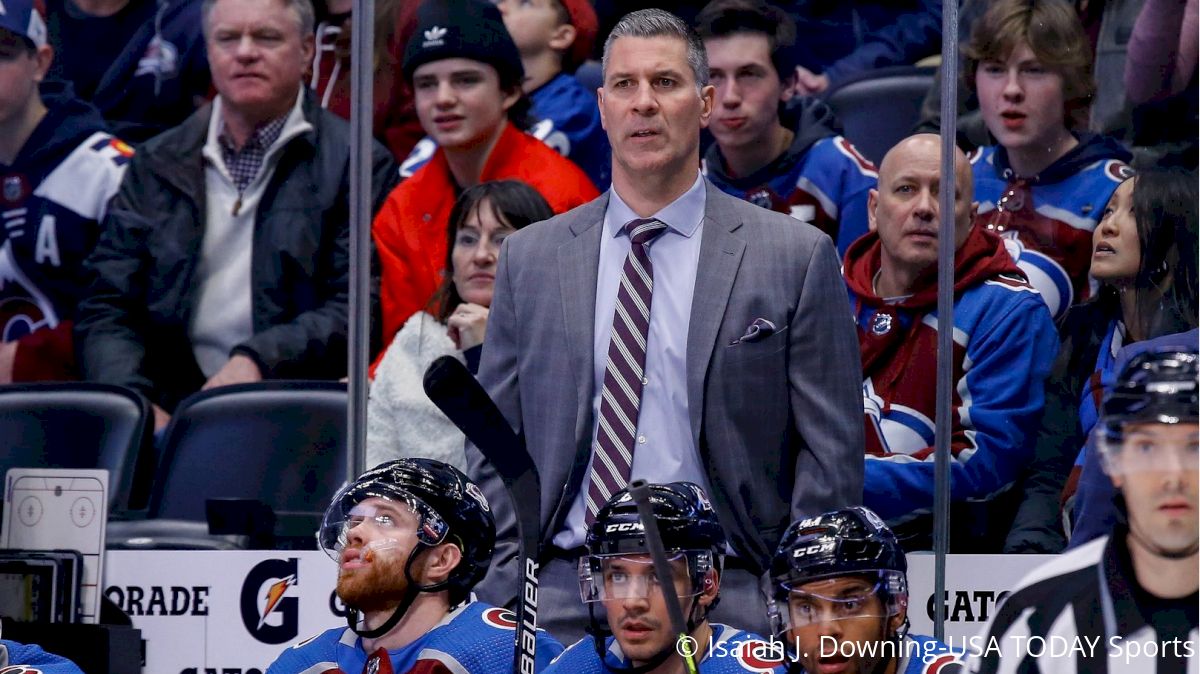Colorado Avalanche's Bednar Credits ECHL Experience In Big League Success
Colorado Avalanche's Bednar Credits ECHL Experience In Big League Success
FloHockey talked one on one with the head coach of the Colorado Avalanche, Jared Bednar. Hear what the former ECHL star had to say.

Jared Bednar of the Colorado Avalanche does not fit the stereotype of the NHL’s hottest young coach: he’s a graying 48-year-old who spent 16 years playing and coaching in the ECHL, never once getting a sniff at playing in The Show. When he finally got his dream job, coaching the Avs in 2016-17, it quickly devolved into a nightmare — a 56-loss horror show, alone in last place.
But the rugged product of western Canada survived the catastrophic season and immediately turned around Colorado’s fortunes: three straight playoff appearances, including the most wins in the NHL’S Western Conference this past year. Bednar credits his combined 16 years in the ECHL — where he won three championships as both player and coach — with giving him the experience and confidence to survive and now thrive in the NHL. FloHockey’s Tim Rappleye caught up with Jared Bednar, the poster child of the league known as “The Coast.”
FLO: Coach, you were raised in Western Canada, surrounded by NHL prospects while playing junior in the WHL. Was the East Coast Hockey League even on your radar?
BEDNAR: No, I had no idea. Being a naïve kid from the prairies, I’d see players I played with go to the NHL, and believed I could do that. Then I got an eye-opening [ignored in the NHL draft]. I was told, ‘Hey this team is looking for players.’ I ended up in Huntington, West Virginia, and then traded to South Carolina. I didn’t know where those places were, I had to look at a map. Where’s West Virginia, you know? You just kind of take off and go on an adventure of a lifetime.
At age 30, with nine seasons of playing in the minors, you transitioned to coaching. How big a role did your former teammate and South Carolina coach Jason Fitzsimmons play?
Huge. We lived a couple blocks from each other, doing some yard work kicking around in the offseason. He just said, “Why don’t you join me and coach?” I was 30, with the young family and everything, the league was getting younger. I pondered for a bit and said, “Yeah, I’ll do it.” I fell in love with coaching right away.
You won a Kelly Cup championship with the Stingrays in your second year behind the bench. How was that different from winning it as a player?
As a player, you’re more concerned with what you have to do. As a coach, you know you had a large role convincing guys to come, how they played, how the team played. To see their faces when you win, and get rewarded for the work they put in, it was just amazing, the most rewarding feeling I had professionally to that date.
My time with the Stingrays in Charleston, and the success we had, really helped the fire grow from a coaching standpoint. I loved it, the next best thing to playing. You’re in the fight, you have the passion, every night jitters before games, that still hasn’t gone away. Whenever you’re doing something like that, you’re excited to come to work every day. I knew I wanted to pursue that as a career.
You’re known as a guy who paid a lot of dues on the minor league coaching ladder, winning championships in both the ECHL and the AHL. How much did that success help you survive that nightmare first season in Colorado?
It was significant. Losing makes you question everything you do. I had an assistant coach Nolan Pratt who was with me in Cleveland when we won. We did a lot of talking and soul-searching that year. It was worrisome. I had worked my whole life as a player and coach to get to the NHL, and I thought I could be out of the league and never get back.
I just kept coming back to things I had done previously: building a culture, attitude, how the game should be played, and Xs and Os. I’m extremely grateful to Joe [Sakic] for the opportunity to stay for the rebuild, for his belief in me. We’ve been getting better every year. We’re on the right track, trying to chase down that Cup.
You spent a total of 16 years in the ECHL all told before arriving at The Show. Are you OK being the poster child for the league?
I have absolutely no problem with it. I’m proud of the time I spent there. I still call Charleston home, a lot of my good friends are there, guys that I played with. It’s a really good league with lots of players, coaches, managers, people that come through this league that have a lot of success at other places. I’m a believer in the league, knowing that’s where I started and where I developed.
Tim Rappleye is the author of two books: Jack Parker's Wiseguys and Hobey Baker, Upon Further Review. You can find him on Twitter.